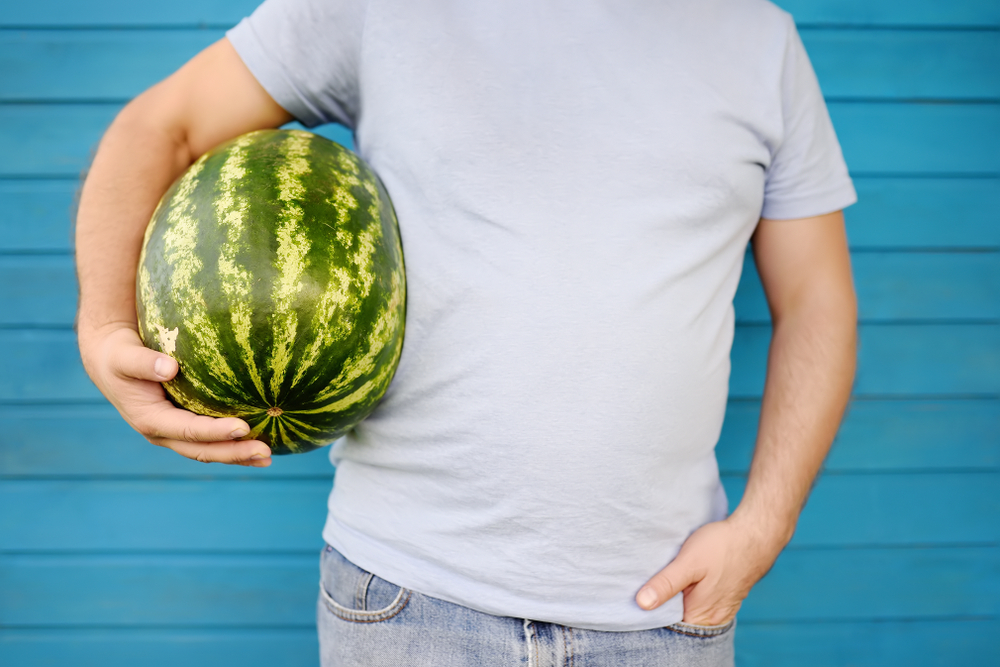Loaded with essential nutrients, watermelon is more than just a sweet and refreshing dessert option or a staple at summer picnics. It is a nutritious food that offers a long list of health benefits, thanks to its high levels of antioxidants, vitamins, and minerals. It has also been found to be good for erectile dysfunction.
An overview of erectile dysfunction
One of the most common sexual health problems in men, erectile dysfunction is a condition in which a man is unable to get an erection or maintain one for sex. According to a study, it affects around 5% of men who are in their 40s, and about 15% of men who are 70 years old or older. While it is more common in older men, it can also afflict guys who are in their 20s or 30s.
Usually, erectile dysfunction has the following symptoms:
- Low sex drive
- Difficulty getting an erection
- Difficulty keeping an erection
It can be caused by different factors, including:
Heart disease
An unhealthy heart will not be able to pump blood that your penis needs to get an erection.
High cholesterol
Having excess cholesterol in the body can thicken the arteries and disrupt blood flow to the penis.
Diabetes
High glucose levels in the body prevent your heart, kidneys, and other vital organs from functioning right.
Prostate problems
The prostate gland is an important organ in the male reproductive system, and it is necessary in the secretion of prostate fluid for the semen.
Drug abuse and alcoholism
The substances found in alcohol can impair various bodily functions, including your brain and nervous system, and cardiovascular system.
Use of certain prescription medications
There are prescription medications used for treatment of high blood pressure, depression, and other health problems that can affect your penile performance.
Stress

Prolonged stress can diminish your libido and make getting an erection during intimate moments difficult.
To treat erectile dysfunction, you should go see your doctor right away. Delaying a doctor’s visit can put your sexual health in more danger and affect other aspects of your life.
Properties of watermelon that can help cure your erectile dysfunction
There have been multiple research studies that focused on the link between watermelon and erectile dysfunction.
One study involving men with erectile dysfunction found that the group that consumed watermelon daily over a one-month period showed significant improvements in their erectile dysfunction’s symptoms, while those that were not fed watermelons continued to experience trouble with getting or keeping their erections. In addition, the former exhibited an increase in sex drive, while the latter did not.
The researchers attributed these improvements in erectile function to the nonessential amino acid L-citrulline contained in watermelon. Once L-citrulline gets into your systems, it causes your blood vessels to dilate. Because of that, your blood circulation improves, your blood pressure levels decrease, and blood flow to your penis occurs smoothly.
A close look at L-citrulline
L-citrulline is a nonessential amino acid that improves the production of nitric oxide in your body. Once it reaches your kidneys, it gets broken down into nitric oxide and L-arginine, two substances that are vital to your blood vessel, heart, and immune health.
- Nitric oxide enhances your artery functions, resulting to better blood flow and circulation in your body, and lower risk of heart disease and other health complications.
- L-arginine is an amino acid that is good for the heart, as it has the ability to prevent the symptoms of peripheral arterial disease and angina.
With a heart that is healthy and pumping blood efficiently, your odds of developing erectile dysfunction are decreased. Your penis will be able to receive enough blood to get hard and remain hard to bring satisfaction and pleasure in the bedroom.
In addition to its sexual health benefits, L-citrulline can help with other conditions, including:
Celiac disease
This is a health problem characterized by the inability to digest gluten, a protein that is commonly found in bread, pasta, and crackers; and to absorb essential nutrients. Among its usual warning signs are fatigue, weight loss, and bloating.
Short bowel syndrome
This is a disorder in which the small intestine is not able to perform its functions. Also known as short gut, its common symptoms are weight loss, dehydration, and malnutrition.
Dementia
This is a medical condition associated with impaired memory, cognitive skills, and other brain functions. It renders a person unable to perform basic things, such as communication, remembering and processing information, visual perception, judgment and reasoning, and focus and concentration.
Parkinson’s disease
This disease affects the central nervous system, bringing about symptoms like shaking, slowness of movements, having trouble walking, rigidity, and speech changes.
Liver disease
This problem can be caused by genetics, viruses, alcohol abuse, obesity, and others. Over time, it can cause serious damage to the liver, such as cirrhosis or scarring, and eventually lead to life-threatening conditions, particularly liver failure.
Advice on watermelon and L-citrulline intake

According to health professionals, the recommended daily L-citrulline dosage is between 3 and 6 grams per day. To help you decide on how you can meet that guideline, here are some facts on watermelon’s L-citrulline content and other L-citrulline sources that you should put in mind:
- One cup of fresh watermelon contains 200 to 300 milligrams of L-citrulline.
- There are L-citrulline supplements that come in capsule or powder form.
- Many other fruits and vegetables contain L-citrulline, including garlic, onion, almonds, eggs, cucumber, and dark chocolate, though not as much as watermelons.
Consulting your doctor
Sometimes, treating erectile dysfunction successfully constitutes more than just eating more watermelons to increase your body’s L-citrulline levels. It may require that you take oral medications, injections, testosterone replacement, and others. It may also be advised by your doctor that you change your lifestyle by eating more healthily, engaging in more physical activity, quitting alcohol drinking and smoking, losing weight, resolving relationship conflicts, finding ways to better manage your stress, or undergoing psychological counseling.







